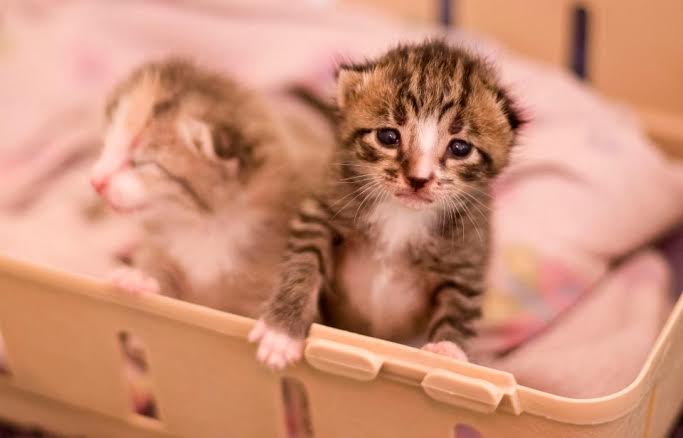
Abandoned Baby Kitten Care: A Comprehensive Guide
Introduction
Abandoned baby kittens are vulnerable and require immediate attention to survive. Caring for them involves providing essential nourishment, warmth, and medical care. This comprehensive guide will provide detailed instructions on how to properly care for abandoned baby kittens, ensuring their well-being and maximizing their chances of survival.
Assessment and Initial Care
1. Assess the Kitten’s Condition:
- Check for any visible injuries, such as cuts, bruises, or broken bones.
- Examine the kitten’s eyes, nose, and mouth for any discharge or abnormalities.
- Note the kitten’s overall appearance, including its size, weight, and activity level.
2. Provide Warmth:
- Create a warm and cozy environment for the kitten using a heating pad set on low or a warm water bottle wrapped in a towel.
- Place the kitten in a small, enclosed space, such as a cardboard box or a pet carrier, to prevent heat loss.
3. Feed the Kitten:
- If the kitten is under 4 weeks old, it will need to be bottle-fed every 2-3 hours.
- Use a kitten-specific milk replacer and follow the instructions on the packaging.
- Hold the kitten upright and gently insert the bottle nipple into its mouth.
4. Stimulate Elimination:
- After feeding, gently rub the kitten’s genital area with a warm, damp cloth to stimulate urination and defecation.
- If the kitten does not eliminate within 15 minutes, consult a veterinarian.
Ongoing Care
1. Feeding Schedule:
- Kittens under 4 weeks old: Feed every 2-3 hours, around the clock.
- Kittens 4-8 weeks old: Feed every 4-6 hours.
- Kittens 8-12 weeks old: Feed 3-4 times per day.
2. Nutrition:
- Use a high-quality kitten-specific milk replacer until the kitten is fully weaned.
- Gradually introduce solid food, such as kitten formula, around 4-6 weeks of age.
- Provide fresh water at all times.
3. Grooming:
- Gently brush the kitten’s fur to remove any dirt or debris.
- Trim the kitten’s nails if they become too long.
- Clean the kitten’s eyes and ears with a soft, damp cloth.
4. Litter Box Training:
- Place a litter box in a quiet and easily accessible location.
- Fill the litter box with kitten-specific litter.
- Show the kitten the litter box and encourage it to use it.
5. Socialization:
- Handle the kitten gently and frequently to socialize it.
- Introduce the kitten to other people and animals in a controlled environment.
- Play with the kitten using age-appropriate toys.
Medical Care
1. Veterinary Check-up:
- Schedule a veterinary check-up as soon as possible to assess the kitten’s overall health.
- The veterinarian will perform a physical examination, administer vaccinations, and provide deworming treatment.
2. Common Health Issues:
- Diarrhea: Can be caused by improper feeding, parasites, or infections. Consult a veterinarian for treatment.
- Respiratory infections: Can cause sneezing, coughing, and nasal discharge. Seek veterinary attention promptly.
- Eye infections: Can cause redness, swelling, and discharge. Clean the kitten’s eyes with a warm, damp cloth and consult a veterinarian.
3. Emergency Situations:
- If the kitten is not eating or drinking, has difficulty breathing, or is lethargic, seek immediate veterinary attention.
- These symptoms can indicate a serious medical condition that requires prompt treatment.
Weaning and Adoption
1. Weaning:
- Start weaning the kitten around 4-6 weeks of age.
- Gradually mix solid food into the kitten’s milk replacer.
- By 8-12 weeks of age, the kitten should be fully weaned.
2. Adoption:
- Once the kitten is fully weaned and has received all necessary vaccinations, it can be adopted into a loving home.
- Consider contacting local animal shelters or rescue organizations to find a suitable adopter.
Conclusion
Caring for abandoned baby kittens requires patience, dedication, and a commitment to their well-being. By following the guidelines outlined in this comprehensive guide, you can provide these vulnerable creatures with the essential nourishment, warmth, and medical care they need to thrive. Remember to seek veterinary attention promptly for any health concerns and to socialize the kitten to ensure its future happiness and well-being.
